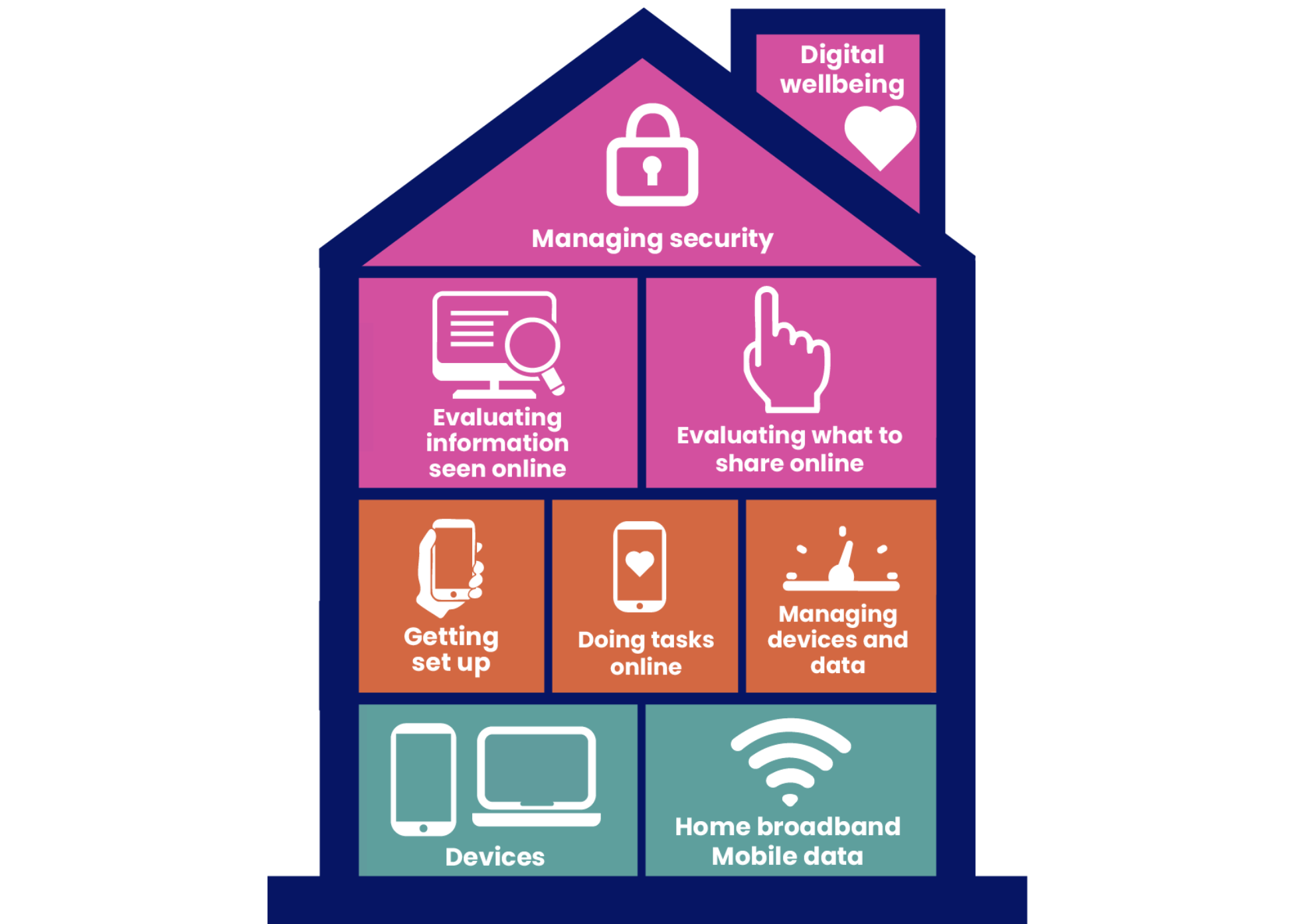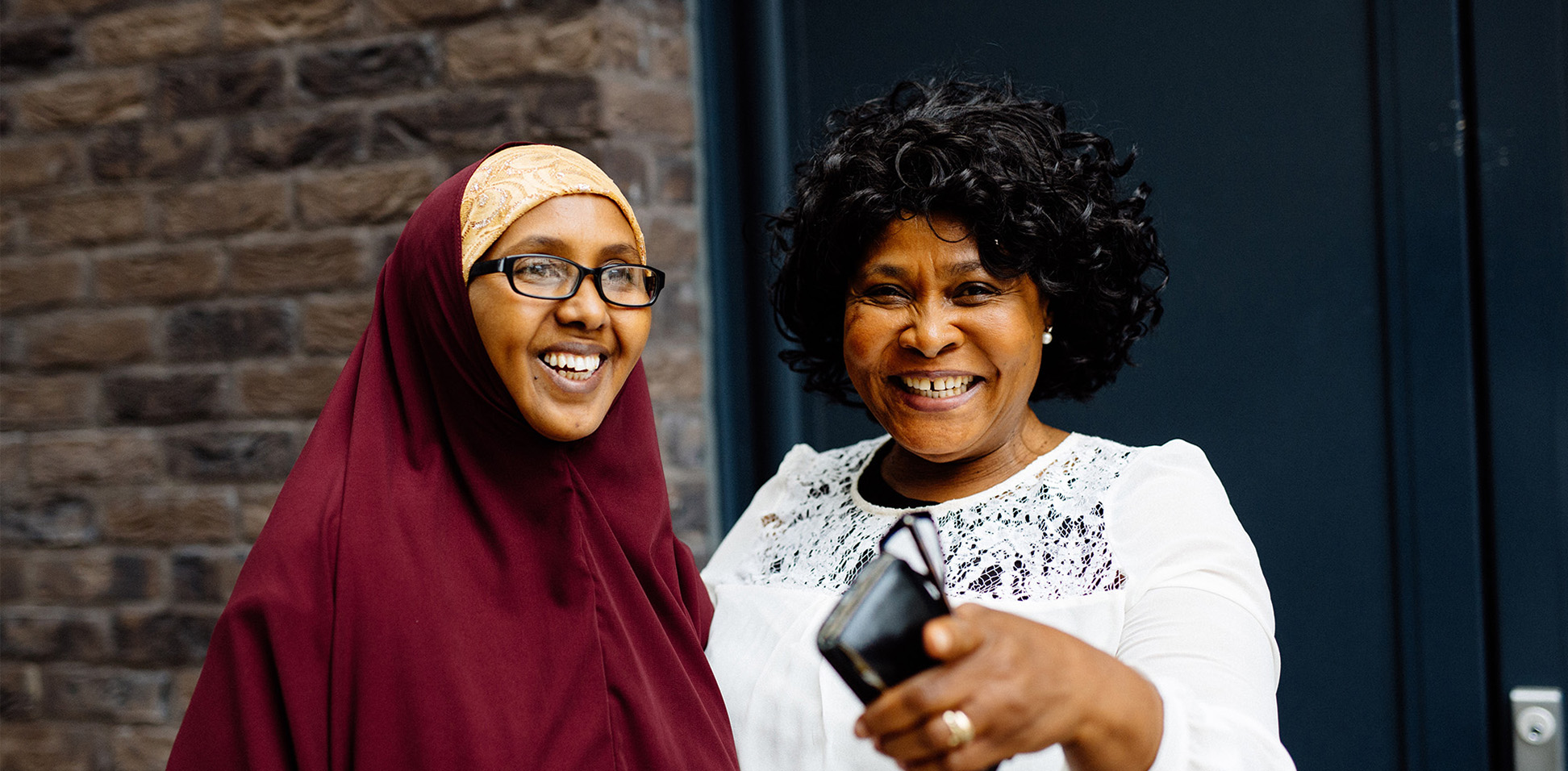Joining the dots: Child poverty and the digital divide in Scotland
In this guest blog, Cara Hilton from Trussell Scotland writes about a roundtable meeting that brought together stakeholders to address the interconnected challenges of child poverty and digital exclusion, highlighting that one in six households referred to food banks lack internet access and how advocating for digital inclusion is essential to tackling poverty.
Watch the roundtable on demand
Get an insight into the discussions by watching the roundtable on demand below, or read on for Cara Hilton's guest blog.
Everyone in Scotland should be able to afford the essentials. Food, heating, travel to work or school, toiletries, access to the internet. Despite some welcome progress - such as the Scottish Child Payment - one million Scots faced hunger due to a lack of money last year.
Households with children in Scotland are twice as likely to face hunger. In fact, 212,000 children faced hunger last year - that’s one in four children. This is magnified in Scotland’s poorest communities, where households are three times more likely to go without food.
This isn’t right. We believe that families should have enough income to be able to access the opportunities that every child deserves. This includes access to the digital world.
Trussell’s Hunger in Scotland research has revealed that:
- 1 in 6 households referred to food banks has no access to the internet at all;
- Only 1 in 3 of households with internet access have Wi-Fi in their home.
Trying to navigate services, such as the social security system, as well as advice and support services for mental health, housing, and employment, can be frustrating and exhausting without online access - especially as they increasingly become digital-by-default.
Online access is also vital for children’s educational success and to closing the poverty related attainment gap, yet half of children from low-income households are unable to regularly access devices or the internet. This traps many in a cycle of poverty, missed opportunities, and in social isolation.
And so when I met Emma Stone of Good Things Foundation at a VodafoneThree networking event before the summer, I jumped at her idea of co-hosting a roundtable bringing together stakeholders tackling child poverty and digital inclusion in Scotland. It was a chance to dig into the growing evidence base - including the latest Minimum Digital Living Standard (UK and Scotland) research; and to look at how we join the dots and strengthen our approaches.

Show image description Hide image description
Image of a house divided into rooms. Each room has an icon and text. Ground floor: Devices; Home Broadband; Mobile Data. First floor: Getting set up. Doing tasks online. Managing devices and data. Second floor: Evaluating information seen online. Evaluating what to share online. Loft space: Managing security. Chimney: Digital wellbeing.
On Monday 15 September in Edinburgh, Good Things, Trussell and SCVO hosted an interactive roundtable with a mix of stakeholders from both Scottish and UK Governments, national and local charities, social enterprises, council officers and researchers.
Together we talked about the complex challenges Scotland faces in tackling both child poverty and the digital divide, altogether aiming for a Scotland where every child - and indeed every household - can participate in the digital world - safely, confidently, and with the kit, connectivity and support they need.
Insights and ideas -
- Internet access is essential - Recognising that, with more services, support and opportunities going online, internet access is now a vital part of tackling child poverty and deep poverty in the UK;
- A digital inclusion lens - Applying the Minimum Digital Living Standard for households to advocacy, policy development and initiatives on child poverty and anti-poverty, and related policy areas like housing, energy, work, and education;
- Skills to skill up - Upskilling and building the confidence of state and charity service support staff with the digital basics to ensure they are equipped to help those experiencing digital exclusion;
- A shared customer base - Policymakers, providers, and advocates can do better at joining up the evidence and calls to action - through networks such as the End Child Poverty Network and Scotland’s Digital Inclusion Alliance, and opportunities like the Scottish Government’s Child Poverty Delivery Plan - and signposting across different services so people get the support they need;
- Mainstream the narrative - Strengthen evidence base to make an easy case for child poverty and digital inclusion to be firmly on the agenda, including topics like online safety and media literacy for adults;
- Donate devices - Organisations can do more to support refurbishment, reuse, and rehoming of quality devices to households who can’t afford them - the IT Reuse for Good Charter is a new initiative to encourage this;
- Take advantage of accessibility - There is huge scope for greater accessibility and usability in digitised products and services, and learning from others including Scottish’s Government easy-to-navigate Social Security Scotland;
- Centre a hyperlocal approach - Trusted places with trusted faces remain pivotal to ensuring people have the confidence, safety, and skills to navigate the online world - and beyond. Community-based delivery needs sustained funding.
Tackling hunger and hardship must be the top priority of both our governments - and this must include fixing the digital divide. Digital inclusion must be at the heart of the fairer Scotland we all want to see.
We came away energised and determined to work together in partnership towards a Scotland where everyone, wherever they live and whatever their incomes or family circumstances, has the right to the essentials - including digital. It has been a delight to work with Good Things Foundation and we are excited to continue to collaborate as we work towards a Scotland where every person can participate in the digital nation.
You can read Trussell’s latest Hunger in Scotland report here.


